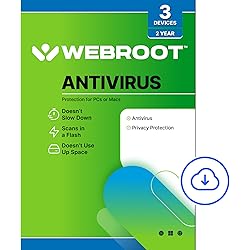The shift towards remote work has brought unprecedented flexibility and new opportunities for professionals around the world. However, this transition also poses significant security risks, particularly when it comes to internet connectivity and data privacy. As remote work often relies on personal networks and public Wi-Fi, the potential for cyber threats increases dramatically. A Virtual Private Network (VPN) is a critical tool that can safeguard remote workers by encrypting their online traffic and securing their internet connections. Here’s an in-depth look at the security risks associated with remote work and how a VPN can mitigate these dangers.
For remote workers, a VPN is not just a tool for enhancing privacy; it’s a necessary layer of security that protects sensitive personal and corporate data from a variety of cyber threats. By encrypting data, securing connections to corporate networks, and providing safe access to public Wi-Fi, VPNs play a crucial role in the security infrastructure for remote work. Implementing a VPN is a proactive step towards ensuring a safe and efficient remote working environment.
Understanding the Risks of Remote Work
Remote work environments differ significantly from traditional office settings, primarily due to the nature of internet connections used:
1. Insecure Wi-Fi Networks
Many remote workers may connect to unsecured public Wi-Fi networks at cafes, libraries, or airports. These networks are prime targets for cybercriminals who can easily intercept unencrypted data, such as passwords and confidential emails.
2. Risk of Data Interception
Without a secure connection, data transmitted over the internet can be vulnerable to eavesdropping. Cybercriminals use techniques like man-in-the-middle attacks to capture data as it travels between a remote worker’s device and the corporate network.
3. Lack of Secure Access to Corporate Systems
Remote workers often need to access sensitive corporate systems and databases. Without proper security measures, these connections can expose critical business data to unauthorized users.
4. Phishing and Malware Attacks
Remote workers are frequently targeted by phishing attacks and malicious software designed to steal credentials or damage systems. These attacks can be more challenging to manage remotely without centralized IT support.
How a VPN Protects Remote Workers
A VPN addresses these vulnerabilities by providing secure and private access to the internet. Here are the key ways a VPN enhances security for remote workers:
1. Encryption of Data
A VPN encrypts all data transmitted between a remote worker’s device and the VPN server. This encryption makes it nearly impossible for hackers to read or intercept the data, even if they manage to tap into the network.
2. Secure Access to Corporate Networks
VPNs can be configured to create a secure “tunnel” from the remote worker’s device to the corporate network. This setup ensures that all access to business resources is both encrypted and authenticated, significantly reducing the risk of data breaches.
3. Anonymizing Online Presence
By routing internet traffic through a VPN server, remote workers can mask their real IP addresses. This anonymity helps protect against targeted cyber attacks and reduces the likelihood of falling victim to location-based phishing schemes.
4. Safe Use of Public Wi-Fi
With a VPN, remote workers can safely use public Wi-Fi networks without worrying about data theft. The VPN encrypts their internet connection, shielding their activities from snooping by third parties on the same network.
5. Protection Against Phishing and Malware
Some advanced VPNs offer integrated security features such as malware scanning, ad blocking, and anti-phishing tools. These features provide an additional layer of security, especially important in remote work settings where IT support may not be immediately accessible.
Recommended VPNs for Remote Workers
When choosing a VPN for remote work, consider providers that offer robust encryption, a wide range of server locations, no-logs policies, and additional security features. Some of the top VPNs for remote workers include:
- NordVPN: Offers double encryption, secure protocols, and CyberSec feature to block ads and malicious websites.
- ExpressVPN: Known for its high-speed connections and strong encryption, making it ideal for handling sensitive business data.
- Surfshark: Provides unlimited device connections and CleanWeb technology to ward off malware and phishing attempts.



